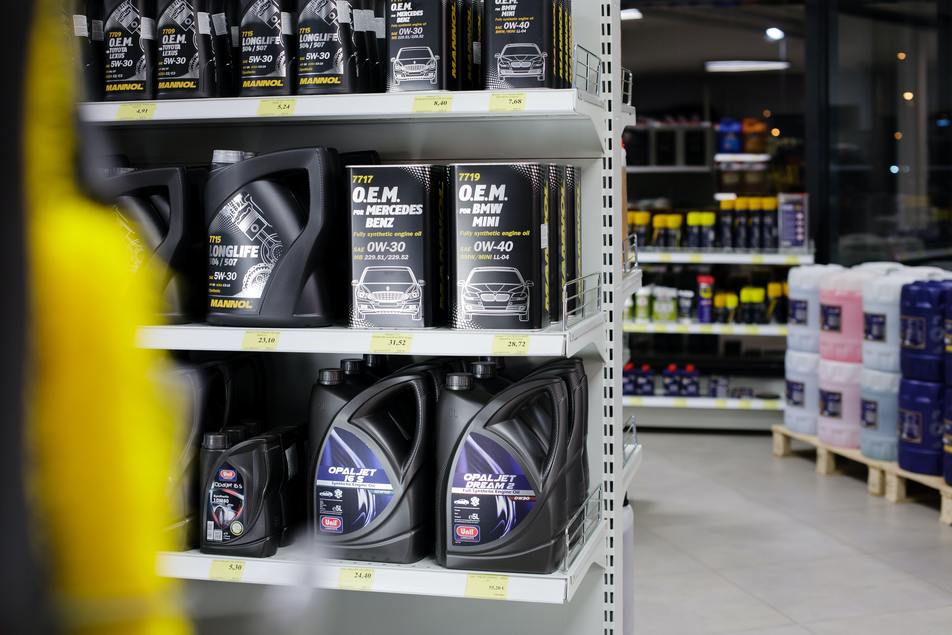4 Types of Motor Oils: Choosing the Best for Your Vehicle
-
Written by Eric Riddles
-
Published on February 03, 2021
-
Category: General Service
The purpose of motor oil is to keep your engine's running parts clean and lubricated. This reduces wear and tear on the parts, keeps the engine cool, and helps reduce the build-up of damaging sludge. Only clean oil can do these important tasks effectively, so regular oil changes are important for your engine's longevity. When it’s time for an oil change, one decision you face is choosing the right oil for your vehicle and the way you drive. Check out the four different types of motor oils and advantages and disadvantages for each below.

1. Conventional Motor Oil
Conventional motor oil is created directly from crude oil. Since it's the least refined type of oil, it's usually much cheaper than synthetic oils. However, the lack of additional refining means it tends to have more sludge building impurities. Because of those impurities, your vehicle will need more frequent oil changes. Oil change recommendations are every 3,000-5,000 miles for conventional oils versus 7,500-10,000 miles for synthetic oils.
2. Synthetic Oil
This highly refined oil is often combined with engine additives that can extend the life of your engine. These additives help reduce engine wear, prevent corrosion, and keep the engine's moving parts cleaner. A carrier oil is added to improve the distribution of these additives throughout the engine. All of these benefits come at a price. Synthetic oil is significantly more expensive than conventional oil. Nevertheless, most newer cars require it — not using it may even void your warranty! It's also highly recommended for vehicles that do a lot of stop and go driving, pull heavy loads, or operate in extreme weather.
3. Synthetic Blend
This oil blends conventional and synthetic oils. A synthetic blend allows you to enjoy some of the benefits of synthetic oil at a more reasonable price.
4. High Mileage Oil
As your engine accumulates miles, it also accumulates damage and sludge. Oils specially formulated for engines with high mileage contain additives like seal conditioners to protect interior seals against leaks. Other additives cause seals, gaskets, and O-rings to swell in order to create tighter seals. They also contain stronger, more effective detergents to help scour away years of sludge buildup. High mileage oils are most beneficial in well-maintained vehicles with at least 75,000 to 100,000 miles on the odometer.
Let Us Take Care of Your Vehicle's Oil Changes
At Custom Complete Automotive, our comprehensive oil change service includes topping off all the other essential fluids and performing multiple preventative maintenance checks. To learn more about our auto services, or to schedule your next oil change, contact us today!
Find an Auto Repair Shop Near You
We have multiple auto repair shops throughout Missouri located in Columbia, Jefferson City, and St. Louis.
Eric Riddles is an ASE Certified Master Automobile Technician who has been working as an auto mechanic since 1998 and originally joined the team at Custom Complete Automotive in 2005. Eric has numerous certifications in various aspects of car repair and spent 10 years training the next generation of auto technicians at a local high school Auto Shop classroom.


